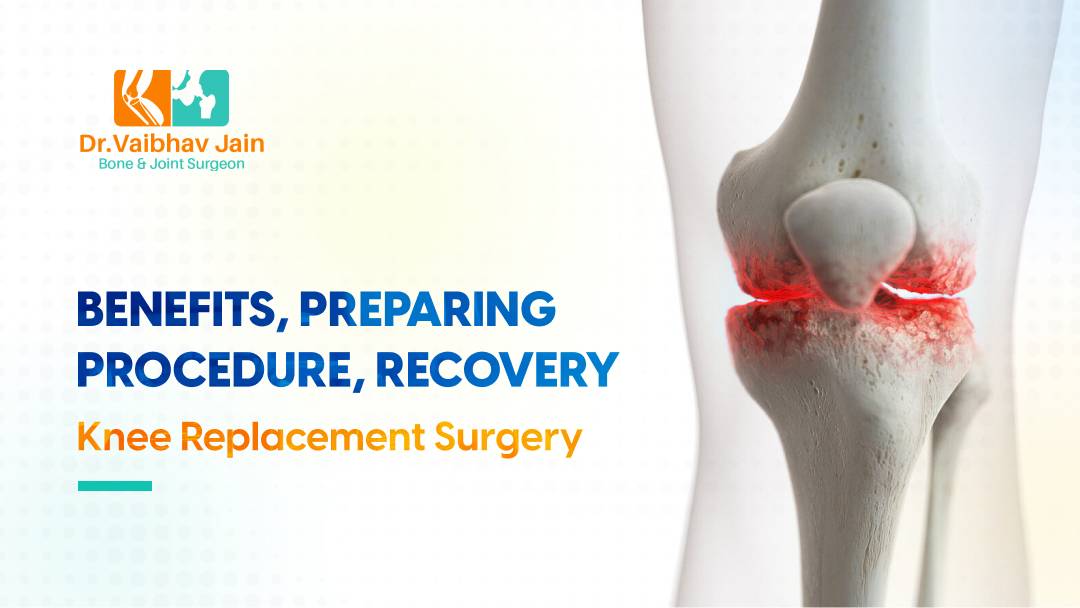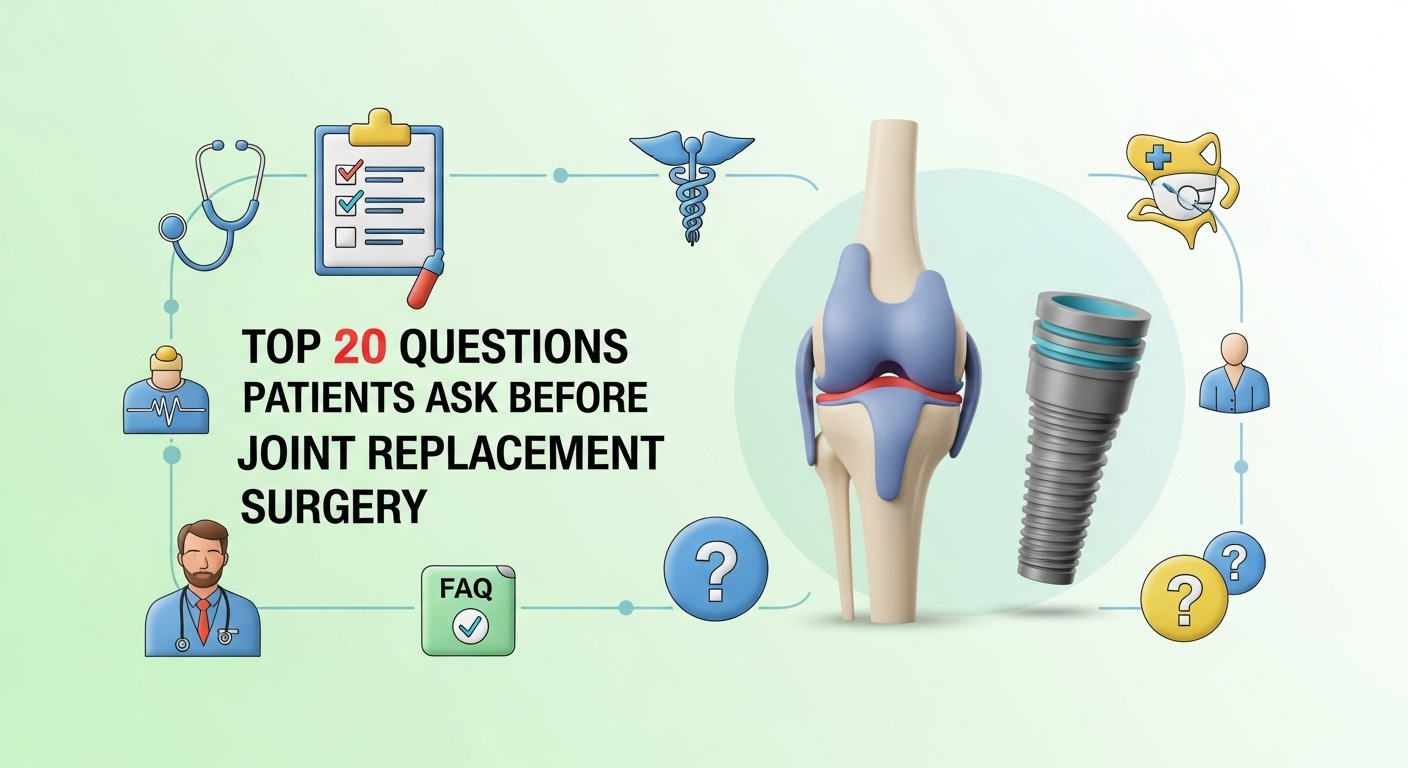Knee replacement surgery in Delhi, known as knee arthroplasty, is a surgical procedure performed to reduce chronic knee pain and restore mobility in individuals suffering from conditions such as knee osteoarthritis.
This procedure involves replacing the damaged or diseased parts of the knee joint with artificial implants, allowing for improved functionality and reduced pain.
Living with knee pain can impact one’s quality of life, making it difficult to perform everyday activities and enjoy hobbies. Knee replacement surgery provides a long-term solution by addressing the underlying cause of the pain and restoring the knee joint’s function.
Benefits Of Knee Replacement Surgery
The benefits of knee joint replacement surgery are significant and life-changing. By undergoing this procedure, individuals experience a considerable reduction in pain, enabling them to engage in activities they once found challenging or impossible. The surgery improves mobility, allowing individuals to walk, climb stairs, and enjoy an active lifestyle with ease.
One of the remarkable advantages of joint replacement surgery is its long-lasting results. The artificial implants used in the procedure are designed to be durable, providing years of pain relief and improved functionality.
Moreover, the success rates of knee replacement surgery are high, with the majority of patients experiencing significant improvements in their quality of life.
Who Is A Patient For Knee Replacement Surgery?
Knee replacement surgery is recommended for patients who have severe knee pain, stiffness, and difficulty walking due to damage caused by osteoarthritis, rheumatoid arthritis, or other conditions. The surgery is recommended when other treatments have failed to provide relief from the pain and discomfort.
Choosing The Right Hospital And Surgeon In Delhi
When considering knee replacement surgery in Delhi, need to to choose the right Knee Replacement Doctor or Surgeon in Delhi for optimal results. Moolchand Hospital is the best Hospital for Knee Replacement in Delhi. Dr Vaibhav Jain is Best Orthopedic surgeon for joint replacement. Here are a few key steps to follow:
- Researching hospitals with specialized orthopedic departments and experienced surgeons: Look for hospitals that have a dedicated orthopedic department and a team of experienced knee replacement surgeons. Consider factors such as the hospital’s reputation, expertise, and success rates in performing knee replacement surgeries.
- Reading reviews and testimonials: Take the time to read reviews and testimonials from previous patients. Their experiences can provide valuable insights into the quality of care and outcomes achieved by the hospital and the surgeon.
- Considering factors such as technology, facilities, success rates, and post-operative support: Evaluate the hospital’s infrastructure, available technology, and facilities. Additionally, consider the success rates of knee replacement surgeries performed at the hospital and inquire about the post-operative support provided to patients.
Preparing For Knee Replacement Surgery
Preparing for knee replacement surgery involves a few essential steps to ensure a smooth process and optimal outcomes:
- Consult with the surgeon: Schedule a consultation with the knee replacement surgeon to discuss the procedure, expected outcomes, and any concerns or questions you may have. This consultation allows you to build trust with your surgeon and gain a better understanding of the surgery.
- Follow preoperative instructions: Your surgeon will provide specific instructions to prepare for the surgery. This may include adjustments to current medications, blood tests, and lifestyle changes, such as quitting smoking or losing weight. Follow these instructions carefully to ensure your body is in the best possible condition for surgery.
- Make necessary arrangements: Before the surgery, make arrangements for post-surgery care and support. This may involve arranging transportation to and from the hospital, ensuring you have someone to assist you at home during the initial recovery period, and making any necessary modifications to your living space to accommodate your needs.
The Knee Replacement Surgery Procedure
The knee replacement surgery procedure typically involves the following steps:
- Anesthesia: Before the surgery begins, anesthesia will be administered to ensure your comfort and pain-free experience. You may receive general anesthesia to put you to sleep or regional anesthesia to numb the lower part of your body.
- Incision: The surgeon will make an incision in the knee area to access the damaged joint. The length and location of the incision may vary depending on the specific surgical approach.
- Implantation: The damaged parts of the knee joint, including the cartilage and bone, are removed and replaced with artificial implants. These implants are carefully selected to match the natural shape and function of the knee joint, allowing for smooth movement and stability.
- Closure: After the implants are in place, the surgeon will close the incision with sutures or staples. A sterile dressing will be applied to protect the incision site.
Recovery And Rehabilitation After Surgery
Recovering from knee replacement surgery requires time, patience, and a commitment to rehabilitation. The following steps are crucial for a successful recovery:
- Immediate postoperative care: You will receive pain medication to manage any discomfort and will be closely monitored by the medical team. Wound care instructions will be provided to prevent infection and promote healing.
- Physical therapy and exercises: Physical therapy plays a vital role in the recovery process. Your therapist will design a personalized rehabilitation program to improve strength, flexibility, and mobility in the knee joint. Regularly perform the prescribed exercises to regain function and minimize stiffness.
- Managing discomfort and following medication schedules: Follow your surgeon’s instructions regarding pain medication and any other prescribed medications. It is crucial to take medications as directed to manage pain and prevent complications.





